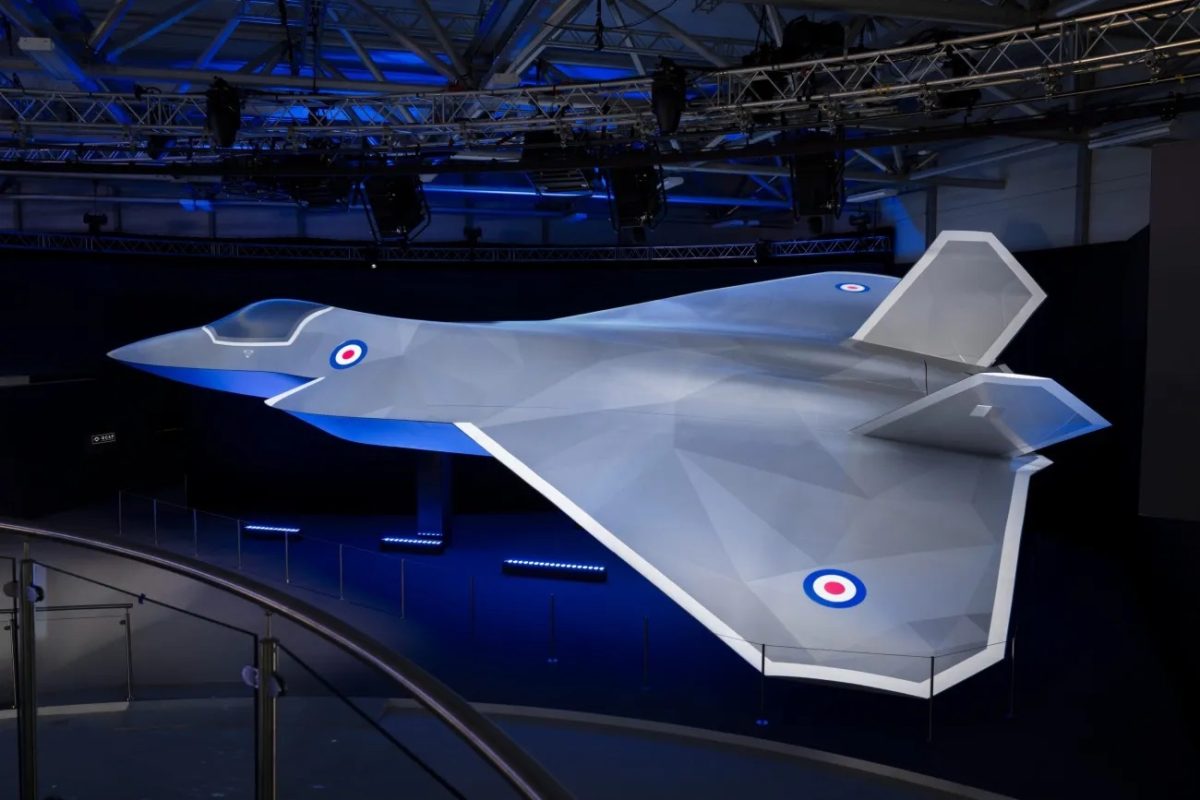The ambitious Global Combat Air Program (GCAP), a next-generation fighter jet initiative jointly developed by the UK, Japan, and Italy, took a major step forward as Rome completed the ratification process for the trilateral treaty.
The ratification was confirmed by the Italian Undersecretary of State for Defense, Isabella Rauti, in the Italian parliament on November 13.
She said that the parliamentary ratification and execution process of the agreement—signed in Tokyo in December 2023—between Italy, Japan, and the United Kingdom has been completed with approval in the Chamber of Deputies for establishing the GCAP.
This announcement comes just weeks after Luke Pollard, the UK Parliamentary Under-Secretary of State for Defence, declared the UK’s own ratification on October 14. Japan had already ratified the treaty earlier this year, solidifying the three nations’ legal commitment to the project.
This clears the path for joint development work to progress, aligning the three nations under a shared goal of enhancing aerial defense capabilities through advanced technologies.

Notably, China unveiled its sixth-generation fighter jet mock-up at the ongoing Zhuhai airshow earlier this week. Dubbed the “Baidi” or “White Emperor,” the fighter jet is envisioned as an “integrated space-air fighter,” capable of supersonic flight and breaking through the Earth’s atmosphere to operate in space.
GCAP is designed to combine Japan’s F-X program with the UK and Italy’s Tempest project, aiming to deliver a state-of-the-art, supersonic fighter jet by 2035.
Equipped with advanced avionics and stealth features, the aircraft is expected to meet modern defense requirements, including countering high-level adversarial threats. A demonstrator showcasing the jet’s sophisticated avionics is slated to be unveiled as early as 2027.
On November 5, the UK Prime Minister gave the green light for building the multibillion-pound fighter jet during a meeting with several ministers. The UK has already pledged over £2 billion (US$2.5 billion) towards the original Tempest project, but the overall financial commitment needed to bring GCAP to fruition is still being determined.
As the program advances, the treaty’s provisions also include developing unmanned ‘loyal wingman’ drones on a national basis, complementing the manned fighter jets within an integrated system-of-systems approach.
The project’s primary contractors — Leonardo in Italy, Mitsubishi Heavy Industries (MHI) in Japan, and BAE Systems in the UK — recently confirmed that the current concept and assessment phase is nearing completion.
With all three nations formally committed, GCAP is poised to shape the future of air combat and defense.
GCAP Advances Sixth-Generation Fighter Jet
The Global Combat Air Program (GCAP), pronounced “G-Cap,” is a groundbreaking tri-national initiative to develop a sixth-generation fighter jet that will integrate multiple advanced systems.

Initially known as the Tempest, the project was renamed GCAP after Japan joined the program and incorporated its Mitsubishi F-X fighter program. This international collaboration includes the UK, Japan, and Italy, each bringing their technological strengths.
The GCAP partners aim to create an aircraft that will be one of the world’s most advanced, featuring unmatched sophistication, interoperability, flexibility, and connectivity.
The program aims to replace the Mitsubishi F-2 used by Japan’s Air Self-Defense Force and the Eurofighter Typhoon, which is currently in service with the Italian and British Air Forces.
The UK Defence Journal recently reported that the fighter jet’s development is progressing. The report highlighted successful initial test flights conducted using simulators and the advancement of key technologies, including stealth capabilities and the integration of the weapon bay.
British Defence Minister Maria Eagle confirmed the program’s ongoing positive progress during a parliamentary session when asked about the future of the Tempest initiative. She clarified that Tempest is the UK’s designation for the next-generation aircraft being co-developed under GCAP with Japan and Italy.
Eagle added that over 3,500 people are working on future combat air systems, and the UK completed its ratification process for the GCAP Convention in October. This treaty establishes the GCAP International Government Organisation, which is central to the project’s governance and progress.
Eagle also noted that the UK Prime Minister has prioritized the sixth-generation fighter program, alleviating concerns that the new Prime Minister, Keir Starmer, might halt the project, as the Labor government has earlier launched the Strategic Defence Review (SDR) and refused to commit to the GCAP in July 2024.
Despite lingering concerns, GCAP is currently outpacing its rivals. The project’s smooth progress contrasts with the challenges faced by the USA’s Next Generation Air Dominance (NGAD) program, which has encountered uncertainties due to escalating costs, prompting the Pentagon to reevaluate it.
On the other hand, the French-German Future Combat Air System (FCAS) program has experienced a slow start, hindered by differences between France and Germany.
- Contact the author at ashishmichel(at)gmail.com
- Follow EurAsian Times on Google News




